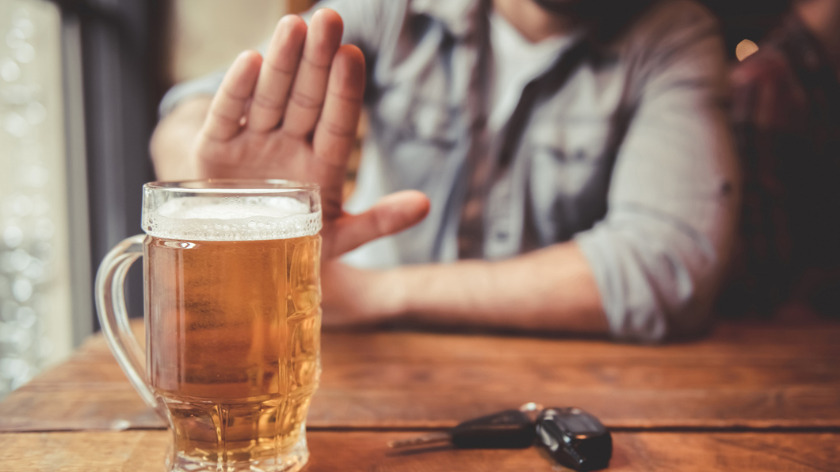Many people enjoy having a glass of their favorite alcoholic beverage with friends to socialize, celebrate a special occasion or unwind after a long day. But know that any alcohol intake comes with health risks. Therefore, it’s recommended that if you do drink, to do so responsibly.
Guidelines recommend men drink no more than 2 drinks per day and women no more than 1 per day. The recommendations differ for men and women because research has shown that alcohol affects men and women differently due to lower concentrations of water in women’s bodies. This means that women develop a higher concentration of alcohol in their blood with the same amount of alcohol intake as men.
It’s also important to know that standard drink sizes differ depending on the type of alcohol. For example, 1 drink of beer is 12 oz., while 1 drink of wine is 5 oz. and 1 drink of liquor (like gin, rum, vodka, or whiskey) is 1.5 oz. The type of alcohol is generally not as important as the quantity and how the speed at which the drink is consumed.
Our bodies can only process about one standard drink of alcohol an hour. When you drink a lot quickly, commonly known as “binge drinking”, your body’s ability to clean out the alcohol slows down and doesn’t work as well. At this point, different parts of the brain are negatively affected, such as memory, judgment, balance and speech. Although these symptoms are frequently the desired effects of drinking alcohol, they are also quite dangerous when it comes to driving a motor vehicle, operating equipment, and making decisions that require sound judgment and critical thinking. This makes alcohol intoxication a common cause of injuries that can be prevented like car crashes and other social problems like problems with the law. Whenever you are out drinking it is important to have a plan of how much you will drink over a set period of time and how you will get home safely.
If you or a loved one may have a problem with drinking, there is free and confidential help available.
For additional help, reach out to:
- Your doctor
- A local counselor with a CSAC (certified substance abuse counselor), psychologist, or psychiatrist
- Your Employee Assistance Plan (EAP) through work if available
- SAMHSA National Helpline 1-800-662-help (4357) – a confidential, free, 24-hour-a-day, 365-day-a-year, information service, in English and Spanish, for individuals and family members.
- Online treatment locator – text your zip code to 465748 to find help near you





